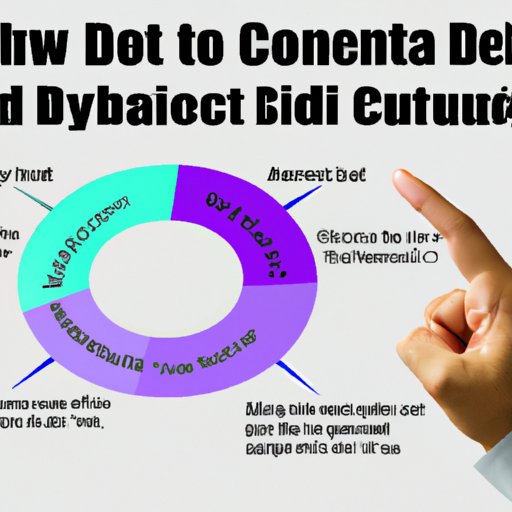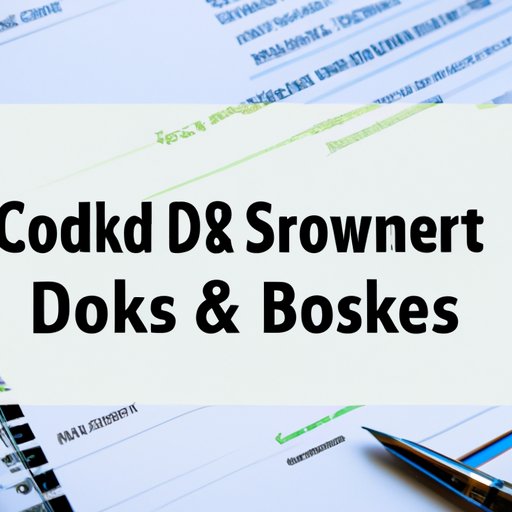Introduction
Certificate of Deposit (CD) investing is an increasingly popular way to save money and grow your wealth. CDs are a type of deposit account that pays a fixed rate of return over a set period of time. CDs offer an attractive mix of safety and higher returns than many other types of investments. When you choose to invest in CDs, you can benefit from the security of FDIC insurance, as well as the potential for higher yields than traditional savings accounts.
In this article, we’ll explore where to buy CDs and what to consider when making your investment decision. We’ll also look at the pros and cons of investing in CDs and discuss how to find the best CD rates for your investment needs. Finally, we’ll provide tips for buying CDs as an investment and discuss brokerage firms where you can purchase CDs for your investment strategy.

Investing in CDs: Where to Buy and What to Consider
When considering CD investment, there are two main options: online or traditional banking. With traditional banking, you can visit a local bank or credit union to open a CD account and get access to competitive rates and terms. Online banks, on the other hand, typically offer higher rates and more flexible terms than traditional banks, but may not have the same level of customer service.
Once you’ve decided whether to go with an online or traditional bank, you’ll need to consider the types of CDs available. There are several different types of CDs, including short-term, long-term, jumbo, and IRA CDs. Each type has its own advantages and disadvantages, so it’s important to research the different types to determine which one is best for your needs.
When choosing a CD, there are several factors to consider. These include the interest rate, maturity date, minimum deposit, penalty for early withdrawal, and any additional fees or charges. It’s important to compare different CDs to ensure you’re getting the best deal.

The Pros and Cons of CD Investing: Where to Buy
There are both advantages and disadvantages to investing in CDs. The biggest advantage is the security of FDIC insurance, which protects your deposits up to $250,000 per institution. CDs also offer higher yields than traditional savings accounts, making them an attractive option for those looking to earn more on their money.
On the downside, CDs come with early withdrawal penalties, which means you could lose some of your principal if you need to withdraw your funds before the CD matures. Additionally, interest rates on CDs are generally lower than other types of investments, such as stocks and bonds.
When it comes to choosing where to buy CDs, you have several options. You can purchase CDs from online banks, traditional banks, credit unions, or financial advisors. Each option has its own benefits, so it’s important to do your research to find the best option for your needs.
How to Choose the Right CD for Your Investment Portfolio
When selecting a CD for your investment portfolio, it’s important to evaluate your financial goals and understand the various types of CDs available. CDs come with different maturities and interest rates, so it’s important to compare rates and terms to find the CD that best meets your needs.
You should also consider the amount of risk you’re willing to take and the length of time you plan to keep your funds in the CD. Short-term CDs typically offer lower interest rates than longer-term CDs, but they also come with less risk. Longer-term CDs offer higher interest rates, but they come with more risk since you may be locked into the CD for a longer period of time.

How to Find the Best CD Rates for Your Investment Needs
When shopping for the best CD rates, it’s important to research online to compare different banks and credit unions. Additionally, shopping around can help you find the best deals. Don’t be afraid to ask questions and compare rates from different institutions to make sure you’re getting the best deal.
It’s also a good idea to consider local banks or credit unions, as they may offer better rates and terms than larger national banks. It’s important to read the fine print and understand the interest rate, early withdrawal penalties, and any additional fees or charges before investing in a CD.
Finding the Best CD Deals: Where to Shop
When looking for the best CD deals, there are several places to shop. Online brokers are a great option, as they often offer competitive rates and terms. Banks and credit unions are another option, as they tend to offer higher interest rates than online brokers. Financial advisors can also help you find the best CD deals for your investment needs.
Tips for Buying CDs as an Investment
When buying CDs as an investment, it’s important to read the fine print and understand the terms and conditions. Make sure you know the interest rate, early withdrawal penalties, and any additional fees or charges associated with the CD. It’s also important to compare rates and terms between different institutions to make sure you’re getting the best deal.

Brokerage Firms: Where to Purchase CDs for Your Investment Strategy
If you’re looking for a more hands-on approach to investing in CDs, you may want to consider using a brokerage firm. Brokerage firms offer a range of services, such as advice on selecting the right type of CD for your investment strategy, access to competitive rates and terms, and assistance with managing your portfolio. When selecting a brokerage firm, it’s important to do your research to find a reputable firm with a solid track record.
Conclusion
Investing in CDs can be a great way to save money and grow your wealth. When deciding where to buy CDs, you have several options, such as online banks, traditional banks, credit unions, and financial advisors. It’s important to understand the different types of CDs available and compare rates and terms to find the best deal. Additionally, it’s important to read the fine print and understand the interest rate, early withdrawal penalties, and any additional fees or charges. Finally, if you’re looking for a more hands-on approach, you may want to consider using a brokerage firm.
By doing your research and understanding the risks and rewards associated with investing in CDs, you can make an informed decision and find the best CD deals for your investment needs.
(Note: Is this article not meeting your expectations? Do you have knowledge or insights to share? Unlock new opportunities and expand your reach by joining our authors team. Click Registration to join us and share your expertise with our readers.)
